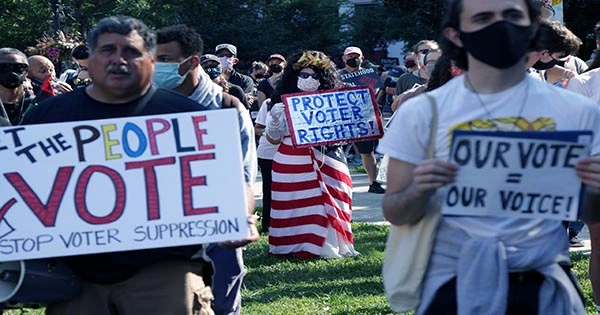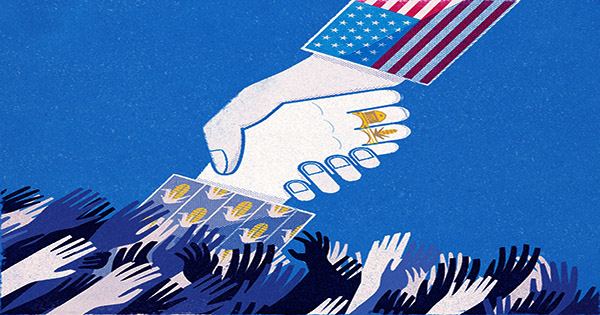What influences voter turnout more—your support for a particular party or how simple it is to cast a ballot? A recent study found that people tend to overestimate the former and underestimate the latter, sometimes known as “friction” variables. Elections are heavily influenced by friction, although voters may not recognize this.
Surveys were taken by the researchers both before and after the 2020 presidential election. They conducted 1,280 interviews with qualified voters in 10 states, asking participants to speculate on the influence of beliefs and conflict on their own and other people’s voting behavior.
According to a survey in Proceedings of the National Academy of Sciences, 91 percent of participants said that beliefs are key factors in voter turnout, with the majority citing political ideology and a sense of civic responsibility. Only 12% of respondents made mention of the outside “friction” causes. These can take a variety of shapes, including long lineups at the polls, busy work schedules, child care issues, short polling hours, and more.
Asaf Mazar, the study’s lead author from the University of Pennsylvania, said in a statement: “Those may seem like insignificant obstacles, but they actually affect whether someone turns out to vote.”
People who undervalued friction were more likely to favor laws that would make voting less accessible by raising the cost of voting.
Several states have passed or considered legislation that further restricts voter access in the previous two years. These restrictions include timeframes for registering to vote, restrictions on mailing in mail-in ballots, and exact signature matching for voter registration. Some of these policies are directed at underserved groups, particularly persons of color.
The study’s chief investigator, psychology professor emerita at the University of Southern California Dornsife Wendy Wood, said, “The findings have significant implications for policy assistance.” “People who ignored the conflict believed that if you are determined to vote, you will do so. This idea appeared to lessen sensitivity to the difficulties associated with voting. You don’t really need to make voting very accessible if you ignore friction.”
















